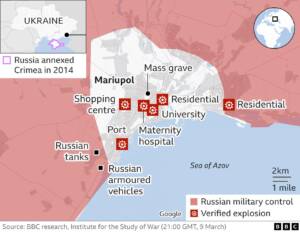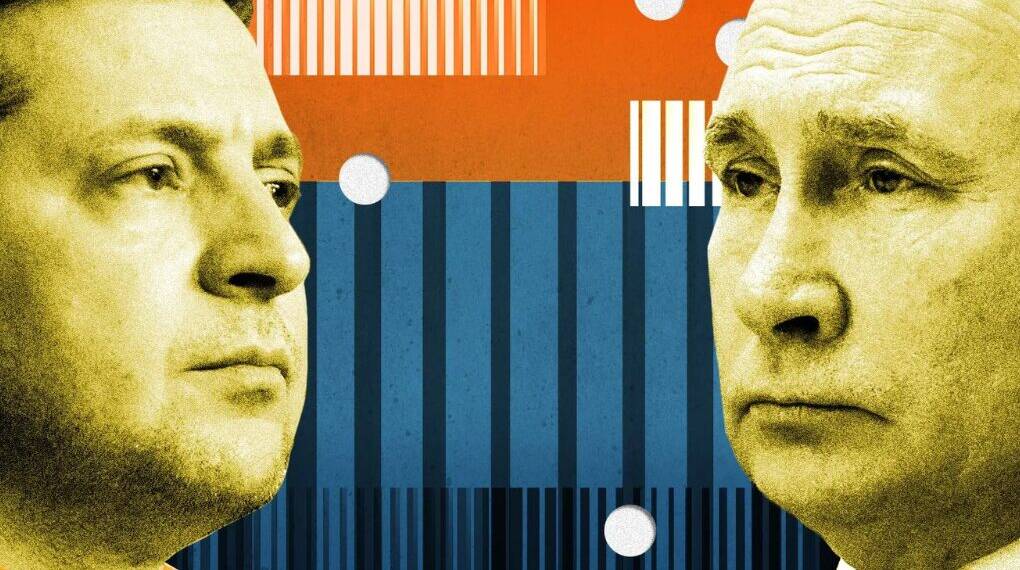Mariupol, a port city on the Sea of Azov in southeastern Ukraine, has become a focal point of the Russia-Ukraine conflict, symbolizing both strategic ambitions and the human cost of war. Its fate continues to shape the narratives and objectives of both Kyiv and Moscow, with each side staking claims to its future.
Why is Mariupol Strategically Important?
Mariupol’s location and resources make it a prize for both Russia and Ukraine:
Geographical Position: The city sits between Russian-occupied Crimea and the Donbas region, making it a linchpin for any land corridor connecting Russian-held territories. Control over Mariupol enables Russia to link Crimea with Donetsk and Luhansk, consolidating its grip over southern Ukraine and securing supply lines.

Economic Value: Before the war, Mariupol was a major industrial hub, home to some of Ukraine’s largest steel and iron plants, and the biggest port in the Azov Sea region. Capturing Mariupol weakens Ukraine economically by cutting off maritime trade and stifling its industrial output.
Military Significance: The city’s fall allows Russia to encircle Ukrainian forces, control the coastline, and project power deeper into Ukraine. It also provides a morale boost for Moscow, which portrays the capture as a step toward “denazification” and liberation of Russian-speaking populations.
Mariupol’s strategic importance lies in its ability to connect Russian-held territories, its role as an industrial and economic hub, and its military value as a coastal stronghold. Control over Mariupol not only shapes the immediate battlefield but also has long-term consequences for the economic and political future of the region.
Also Read: Ukraine surrenders Mariupol to Russia
Inside Mariupol: What’s Happening on the Ground?
Mariupol’s strategic location and industrial value make it a coveted prize for both sides, but its people are paying the highest price. On one hand, Russia argues that its control over Mariupol secures its territorial interests, protects Russian-speaking populations, and brings stability to a war-torn region.
Russian authorities highlight selective reconstruction efforts and the restoration of public order as evidence of progress, and some residents may indeed welcome the return of basic services after years of conflict.
On the other hand, numerous independent reports and testimonies from Mariupol’s residents reveal a far more complex and troubling reality. Many live amid ruins, face shortages of water, food, and medicine, and endure a climate of fear and repression.
Critics of Russia argue that the systematic removal of Ukrainian identity from schools and public life, along with the dangers faced by those who resist the occupation, raises significant concerns about human rights and cultural freedom.
Ukraine and much of the international community view Mariupol as illegally occupied, emphasizing the city’s suffering and the resilience of those who continue to resist. For many Ukrainians, Mariupol is not just a strategic loss but a deeply personal wound and a rallying point for national identity.
Also Read: The strategic importance of Mariupol for Russia
Mariupol’s fate is a microcosm of the wider war. Its strategic location, industrial output, and symbolic weight mean that control over the city shapes not just military outcomes but also the economic and psychological resilience of both sides.
Its devastation and the stories of those who remain—living amid ruins, shortages, and propaganda, underscore the profound human cost of the conflict. As peace talks and international debates continue, Mariupol stands as a stark reminder of what is at stake: territory, identity, and the future of Ukraine itself.
A lasting solution for Mariupol must carefully balance the interests of all parties while prioritizing the well-being and wishes of its residents. Ensuring access to basic services, protecting human rights, and respecting the city’s diverse cultural heritage are essential.
It is crucial that the voices of ordinary people are heard above political agendas and propaganda from any side. Only through open dialogue, transparency, and genuine commitment to peace can Mariupol move beyond occupation and devastation toward a stable and hopeful future.








